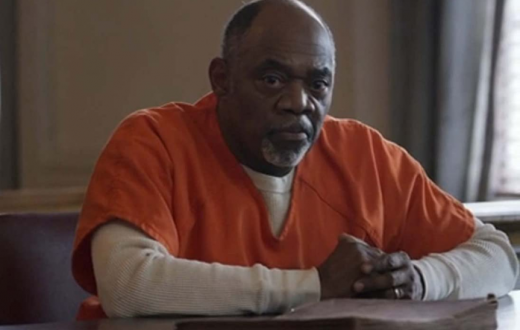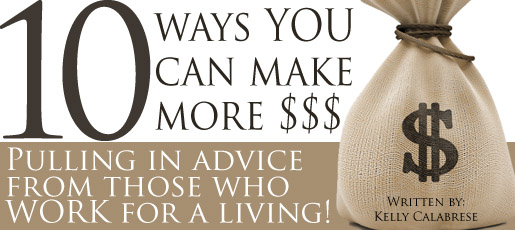Do you know the difference between an Agent and a Manager? Do you need both? And how do they work together?
To help clear up any confusion, NYCastings sought advice from Eric Faber of Faber Talent. We also scored insight from a working actor, Summer Crockett Moore, who has both Agents and a Manager who help her rock it.
Q&A WITH ERIC FABER
 About Eric Faber… The son of an Obie and Drama Desk award-winning actor, Mr. Faber has a well-rounded entertainment background beginning as a child actor making his Broadway debut at age five and performing off-Broadway, in commercials and television and film.
About Eric Faber… The son of an Obie and Drama Desk award-winning actor, Mr. Faber has a well-rounded entertainment background beginning as a child actor making his Broadway debut at age five and performing off-Broadway, in commercials and television and film.
After receiving his college degree in Theater, Mr. Faber found his calling working on behalf of talent while assisting in the theatrical department at Agency for the Performing Arts in Los Angeles. Mr. Faber moved back to New York City and worked as a Manager at JMM and Sullivan Talent Group and then as a union-franchised agent in the on-camera commercial and hosting divisions of Atlas Talent Agency and at Independent Artists Agency in both their theatrical and commercial divisions before opening his own company in January 2011.
Q: From your POV as a former Agent, what is the primary difference between a Manager and an Agent?
You need a Manager when you are starting out in the business to help you get into doors with Casting Directors and with Agents, for both commercial and legit. You can’t just get jobs, if you don’t know anyone. It is the Manager who puts things in place.
With Agents, their sole purpose is to book jobs, to bring in money for the company and keep their clients as busy as possible.
A Manager is more open to developing a client. I work on many different things from making the resume look professional, to choosing headshot photographers, to how to have meetings with Casting Directors and Agents.
When a Manager is working with an actor who doesn’t have an Agent, the Manager will do the job of an Agent as well.
In the beginning of a career, the Manager is the one who opens the doors with Casting Directors, with Commercial Agents, and with Legit Agents in the hopes of partnering up and creating more opportunity for the actors.
Then, if the actor is doing very well, the Manager’s job changes with the actor. Say the actor books a TV series or a film. At that point an actor may have a Manager, a Commercial Agent, a Legit Agent, a Publicist, an Attorney, and also deal with production. A Manager helps to bring all those things together in one place so the actor doesn’t get hit in six different places at once.
The Manager’s job changes with the actor’s career, where as an Agent is just focused on getting the career.
Q: Does a Manager consider taking on actors from a different perspective versus how Agents consider taking on new actors?
Every Manager works in a different way. I like to work with a small client list, with a more boutique style. My job is to find great actors and hopefully there aren’t too many conflicts in terms of other actors in the same age range within my list. Then, I push hard for the actor.
If a Casting Director pulls in your folks, you hope they will call them in again and again. So you can’t throw something at them and see if it sticks. There are some Managers who freelance with everyone and are accountable to no one. It is like a warehouse for actors. I only sign with actors. I am responsible to you, you are responsible to me, and it is all laid out in the contracts. There are different ways to work, as there are different Managers. The good ones have a good reputations and the bad ones don’t.
Q: How can an actor find out if a Manager is good or not?
We have so many tools on the Internet. Every legit Manager has a website. I have a website. You can join IMDb PRO and see their client list. Other periodicals also exist including The Hollywood Creative Directory, The Agents and Manager’s Guide, and Backstage has a bi-monthly magazine of New York representatives.
Also, it is standard practice that a Manager can’t take any more than 15% commission. If a Manager asks for more than 15%, then you need to run, not walk, the other way.
I just heard from an actor about a Manager who wanted 20% commission with a 3 year option, that was the Manager’s option. I think that goes against how to work with an artist. An artist needs to feel free. I only have one-year contracts. I think that is a fair amount of time to get an idea of how we work together. If we are happy, we continue to work together for another year. If not, we say goodbye.
Q: How can an actor find a Manager?
You can go to IMDb PRO and look under Managers. You can click on their list and see if they are legit. It used to be that you had to spend hundreds on postage and send hard copies of headshots and resumes. In this modern age, there are tools that exist.
I am personally open to getting unsolicited submissions. If I don’t like it, I delete it.
Word of mouth is also good. If you are a creative person working with other creative people on a show and you are looking for a Manager, you need to ask around. Ask the people you admire who their reps are.
I am always open to meeting people who are referred by clients of mine because I trust their tastes and talents.
Q: When an actor submits to you, what should they send?
A headshot and resume. And, it is getting to the point that it is hard for me to even consider a prospective new client unless I see some kind of reel.
People wonder how they get a reel without an Agent or a Manager. The fact is that as a creative person it is your mandate to be around other creative people who will help you move forward. We are in a digital age where you can take advantage of cameras, and make webisodes and short films. At the same time, you will get more well-rounded and creative by making your own work. That is the power that an actor can have on their own, to create their own stuff.
Managers get excited when someone is so creative that they are making their own work. Before you know it, you are being chased by Agents and Managers, instead of those looking for crumbs from Agents and Managers, because we can see how creative you really are.
Q: Do Managers review every contract, even if an actor submitted for a job online?
That wouldn’t happen because part of having a contract means that anything entertainment business related is referred to me. If an actor has their own online account, and this has happened a few times, I strongly tell them that it is not how I personally work. You can go through the sites, send me what you are interested in, and I will look at it. But if I am trying to develop a career, we go over the projects together. I can tell you why it is good, or not good, to submit to projects for various reasons.
Q: Do Managers collect commissions even if they didn’t get the actor the audition?
Anything they book, whether it be a job I submitted them for or a project where I signed them up with say Don Buchwald commercially, or for legit with Stewart or Abrams, then I commission on those because I set the actor up with those Agents. At the same time, I am also getting them appointments. So between all of us we are hopefully keeping an actor very busy.
Q: Is it always 15% Commission?
Some of my clients I have known for years, and I only commission 10%. Or some clients came in with an Agent who I can partner with, and I commission 10%. But if you are new, just starting out, the most you should ever be charged is 15% commission.
Q: When an actor has a Manager and an Agent, do they both review each contract?
With commercial contracts they are pretty standard, so I don’t look over the shoulder of the Commercial Agent. If it is a legit contract, I will ask for a copy of the deal memo. The information that I need to know is the rate, the credit, the dates of the shoot, and what we are calling the size of the role. I also send a check authorization to allow me to receive checks on behalf of the clients. Most contracts fall under SAG/AFTRA rules. Obviously when you are dealing with something more complicated, say a Schedule F Contract which is a contract that runs the length of the film, I go through it. I also have an Entertainment Attorney. If there is a clause that I have a question on, I can go and ask him.
Q: Do actors need an Entertainment Attorney as well as a Manager?
If an actor is doing well, it is a standard these days that the Agent and the Manager may negotiate the deal but the fine print gets hammered out by an Entertainment Attorney. A pilot agreement is very complicated and can detail an actor’s services for the next six years. In addition to the Agent and Manager going over the big picture points like how much per episode and how many guaranteed episodes per season, there are a lot of smaller clauses like personal conduct and nudity that needs to be gone through with a fine tooth comb. For that, you want to have an Entertainment Lawyer to go through the contracts because the network has their lawyers going through it and you want to make sure you are fighting fire with fire, that you are on the same footing.
I just booked a client on Person of Interest as a Guest Star, but we knew what the deal was. We knew… This is her credit. This is what she will get paid. This is where her credit will be. For that, it doesn’t need an attorney.
Q: Once an actor signs with you, must they find an Agent through you?
Yes. You can certainly say “I have a wish list of agencies,” and then it would be my job to try and make that happen. But it also depends on your level of ability. If your wish list is CAA and you haven’t booked one episodic, then it is better to sign with a smaller Agent who can help develop you. With the giant agencies, most of their job is not necessarily finding young talent. It is taking talent that already exists and convincing them to sign with a bigger agency that has a list of directors they may want to work with.
Agents rely on good Managers to bring them good people. A lot of agencies are focused on booking jobs, so they will lean on Managers when they are looking for new talent and say “Who do you have that I should meet?”
Q: Do Managers build specific relationships with certain Casting Directors?
That is what helps separate a good Manager and a not good Manager. Over the years, having been a Commercial Agent as well as a Manager at other companies, you build relationships. You build fans in casting who like the choices you make and trust you when you make a submission. This is great because if I really think someone is right for a role, I will get that appointment. If people don’t have great relationships, the best they can do is throw what they have out there and they will be lucky if they get one appointment. You need to respect what the Casting Directors do and give them your best.
Q: You mentioned that you work with specific Casting Directors and Agents. Should an actor ask about those relationships when they meet with you?
You have to play that by ear depending on where you are in your career. If an Agent or a Manager has laid out that they definitely want to work with you, by all means you can put anything on the table. You can ask… Who are the agencies you work with? Who are the Casting Directors you have good relationships with? But if you are just starting out, then it is probably not wise to go there because the Manager feels as if they are in the power seat and you, as the newbie, should just be glad they want to work with you.
You don’t want to be annoying. I have dealt with a couple of clients who didn’t have a lot of credits but I wanted to work with them and they took forever to finalize the contract. I would advise against that. I would say to trust your gut and either say yes or no. You shouldn’t leave people hanging.
Q: Do you submit actors for non-union work?
I submit non-union actors to non-union jobs. I take on mainly union actors.
Q: In becoming a Manager, what did you learn that is essential for actors to realize as well?
I have a full-on background as a child actor and being the son of an Obie and Drama Desk award-winning actor. So my background is a lot different than a lot of Managers who used to be Agents.
A lot of Agents have majored in business and law. What I bring to the table is that I have seen it from your side, and have seen good acting. It is a special gift that I am lucky to have that I can filter what is creative and what is BS. If a prospective actor hands me a performance that is BS, I can call them on it.
I come from a family in the arts, and that is a plus for me.
Q: Do you have any specific advice for actors who are looking to get their career started?
Be on time!
And when you do decide to work with a Manager or Agent, you have to trust their decision making. Especially for young actors starting out, you don’t know what you don’t know. There are so many things that I am already three steps ahead of you in regards to information on a project.
If I say something and you don’t understand, ask questions. Agents and Managers are the folks who can help you understand and learn how to make your way through this business without getting into trouble. We want to help you succeed, so you have to ask questions. When you are starting out, there are no dumb questions. The only dumb thing is not asking and doing something that you weren’t aware was not the right thing to do.
Once you sign those papers, rely on us to provide the answers to the questions you have. And even if you think you know, double check.
—- Thank you Eric Faber!
For more information on Eric, please check out www.fabertalent.com
INSIGHT FROM ACTOR SUMMER CROCKETT MOORE
.jpg) Summer Crockett Moore is (SAG-AFTRA/AEA) is an award-winning actress, voice-over artist & producer living in New York City. Originally from Paris, Tennessee, Summer is a graduate of Circle in the Square Theatre School (New York), and also studied at New York University (Tisch Drama). She is a Managing Partner of Choice Films & Choice Theatricals which has produced various theatre and film projects both in New York and regionally, she serves as the President of the Board at T. Schreiber Studio, and is a Managing Member of the Board of Directors for The Private Theatre, NY.
Summer Crockett Moore is (SAG-AFTRA/AEA) is an award-winning actress, voice-over artist & producer living in New York City. Originally from Paris, Tennessee, Summer is a graduate of Circle in the Square Theatre School (New York), and also studied at New York University (Tisch Drama). She is a Managing Partner of Choice Films & Choice Theatricals which has produced various theatre and film projects both in New York and regionally, she serves as the President of the Board at T. Schreiber Studio, and is a Managing Member of the Board of Directors for The Private Theatre, NY.
Summer is represented by Judy Boals Talent Agency – Theatre, Film & Television, Ann Wright Representatives – Commercials, Hosting & Voice-Overs, and Wright Talent Management – Charlie Wright, Manager
Q: How does the Manager and Agent relationships differ specifically?
With my agents, they focus mainly the majority of the submissions for me on projects — as well as handling the booking/job details when I am cast. However, my manager is also submitting me on various projects, and coordinating certain submissions with my agencies– so there is a bit of a tag-team effort going on that I have found to be helpful along the way as my agents and manager have different relationships with certain casting offices and Producers. My agents mainly work on getting me immediate jobs. My manager helps me plan my long-term goals, all while coordinating those efforts with my agents.
Q: Why should an actor have both? (Or when?!)
A: This is a tough question, and I don’t think there is a black and white answer here. I think it is something that everyone must address — and then readdress again — as a career develops. When I first got out of college, and signed with my agents, there was no need for a manager, as I didn’t really have a career to manage yet. Now, 15 years down the line, I have several avenues in which I work, and having a manager help to focus them — and refocus them at times — has been important. My agents are beating the bushes for work for me on a daily basis, and they negotiate my contracts when I book a job. My manager is helping me make better decisions on how to grow my career, both as a producer and an an actress, and he helps with an overall game plan — that is coordinated with my agents — for what our immediate and our long-term goals are.
—- Thanks Summer!
For more information on Summer Crockett Moore check out:







